- Home
- W. W. Jacobs
Manners Makyth Man
Manners Makyth Man Read online
Produced by David Widger
SHIP'S COMPANY
By W.W. Jacobs
"MANNERS MAKYTH MAN"
The night-watchman appeared to be out of sorts. His movements were evenslower than usual, and, when he sat, the soap-box seemed to be unable togive satisfaction. His face bore an expression of deep melancholy, but asmouldering gleam in his eye betokened feelings deeply moved.
"Play-acting I don't hold with," he burst out, with sudden ferocity."Never did. I don't say I ain't been to a theayter once or twice in mylife, but I always come away with the idea that anybody could act if theyliked to try. It's a kid's game, a silly kid's game, dressing up andpretending to be somebody else."
He cut off a piece of tobacco and, stowing it in his left cheek, satchewing, with his lack-lustre eyes fixed on the wharves across the river.The offensive antics of a lighterman in mid-stream, who nearly felloverboard in his efforts to attract his attention, he ignored.
"I might ha' known it, too," he said, after a long silence. "If I'd onlystopped to think, instead o' being in such a hurry to do good to others,I should ha' been all right, and the pack o' monkey-faced swabs on theLizzie and Annie wot calls themselves sailor-men would 'ave had to 'avegot something else to laugh about. They've told it in every pub for 'arfa mile round, and last night, when I went into the Town of Margate to geta drink, three chaps climbed over the partition to 'ave a look at me.
"It all began with young Ted Sawyer, the mate o' the Lizzie and Annie.He calls himself a mate, but if it wasn't for 'aving the skipper for abrother-in-law 'e'd be called something else, very quick. Two or threetimes we've 'ad words over one thing and another, and the last time Icalled 'im something that I can see now was a mistake. It was one o'these 'ere clever things that a man don't forget, let alone a lop-sidedmonkey like 'im.
"That was when they was up time afore last, and when they made fast 'erelast week I could see as he 'adn't forgotten it. For one thing hepretended not to see me, and, arter I 'ad told him wot I'd do to him if'e ran into me agin, he said 'e thought I was a sack o' potatoes taking aairing on a pair of legs wot somebody 'ad throwed away. Nasty tongue'e's got; not clever, but nasty.
"Arter that I took no notice of 'im, and, o' course, that annoyed 'immore than anything. All I could do I done, and 'e was ringing thegate-bell that night from five minutes to twelve till ha'-past afore Iheard it. Many a night-watchman gets a name for going to sleep when'e's only getting a bit of 'is own back.
"We stood there talking for over 'arf-an-hour arter I 'ad let'im in.Leastways, he did. And whenever I see as he was getting tired I justsaid, 'H'sh!' and 'e'd start agin as fresh as ever. He tumbled to it atlast, and went aboard shaking 'is little fist at me and telling me wothe'd do to me if it wasn't for the lor.
"I kept by the gate as soon as I came on dooty next evening, just to give'im a little smile as 'e went out. There is nothing more aggravatingthan a smile when it is properly done; but there was no signs o' my lord,and, arter practising it on a carman by mistake, I 'ad to go inside for abit and wait till he 'ad gorn.
"The coast was clear by the time I went back, and I 'ad just steppedoutside with my back up agin the gate-post to 'ave a pipe, when I see aboy coming along with a bag. Good-looking lad of about fifteen 'e was,nicely dressed in a serge suit, and he no sooner gets up to me than 'eputs down the bag and looks up at me with a timid sort o' little smile.
"'Good evening, cap'n,' he ses.
"He wasn't the fust that has made that mistake; older people than 'imhave done it.
"'Good evening, my lad,' I ses.
"'I s'pose,' he ses, in a trembling voice, 'I suppose you ain't lookingout for a cabin-boy, sir?'
"'Cabin-boy?' I ses. 'No, I ain't.'
"'I've run away from 'ome to go to sea,' he ses, and I'm afraid of beingpursued. Can I come inside?'
"Afore I could say 'No' he 'ad come, bag and all; and afore I could sayanything else he 'ad nipped into the office and stood there with his 'andon his chest panting.
"'I know I can trust you,' he ses; 'I can see it by your face."
"'Wot 'ave you run away from 'ome for?' I ses. 'Have they beenill-treating of you?'
"'Ill-treating me?' he ses, with a laugh. 'Not much. Why, I expect myfather is running about all over the place offering rewards for me. Hewouldn't lose me for a thousand pounds.'
"I pricked up my ears at that; I don't deny it. Anybody would. Besides,I knew it would be doing him a kindness to hand 'im back to 'is father.And then I did a bit o' thinking to see 'ow it was to be done.
"'Sit down,' I ses, putting three or four ledgers on the floor behind oneof the desks. 'Sit down, and let's talk it over.'
"We talked away for ever so long, but, do all I would, I couldn'tpersuade 'im. His 'ead was stuffed full of coral islands and smugglersand pirates and foreign ports. He said 'e wanted to see the world, andflying-fish.
"'I love the blue billers,' he ses; 'the heaving blue billers is wot Iwant.'
"I tried to explain to 'im who would be doing the heaving, but 'ewouldn't listen to me. He sat on them ledgers like a little woodenimage, looking up at me and shaking his 'ead, and when I told 'im ofstorms and shipwrecks he just smacked 'is lips and his blue eyes shonewith joy. Arter a time I saw it was no good trying to persuade 'im, andI pretended to give way.
"'I think I can get you a ship with a friend o' mine,' I ses; 'but, mind,I've got to relieve your pore father's mind--I must let 'im know wot'sbecome of you.'
"'Not before I've sailed,' he ses, very quick.
"'Certingly not,' I ses. 'But you must give me 'is name and address,and, arter the Blue Shark--that's the name of your ship--is clear of theland, I'll send 'im a letter with no name to it, saying where you avegorn.'
"He didn't seem to like it at fust, and said 'e would write 'imself, butarter I 'ad pointed out that 'e might forget and that I was responsible,'e gave way and told me that 'is father was named Mr. Watson, and he kepta big draper's shop in the Commercial Road.
"We talked a bit arter that, just to stop 'is suspicions, and then I told'im to stay where 'e was on the floor, out of sight of the window, whileI went to see my friend the captain.
"I stood outside for a moment trying to make up my mind wot to do.O'course, I 'ad no business, strictly speaking, to leave the wharf, but,on the other 'and, there was a father's 'art to relieve. I edged alongbit by bit while I was thinking, and then, arter looking back once ortwice to make sure that the boy wasn't watching me, I set off for theCommercial Road as hard as I could go.
"I'm not so young as I was. It was a warm evening, and I 'adn't got evena bus fare on me. I 'ad to walk all the way, and, by the time I gotthere, I was 'arf melted. It was a tidy-sized shop, with three or fournice-looking gals behind the counter, and things like babies' high chairsfor the customers to sit onlong in the leg and ridikerlously small in theseat. I went up to one of the gals and told Per I wanted to see Mr.Watson.
"'On private business,' I ses. 'Very important.'
"She looked at me for a moment, and then she went away and fetched atall, bald-headed man with grey side-whiskers and a large nose.
"'Wot d'you want?" he ses, coming up to me.
I want a word with you in private,' I ses.
"'This is private enough for me,' he ses. 'Say wot you 'ave to say, andbe quick about it.'
"I drawed myself up a bit and looked at him. 'P'r'aps you ain't missed'im yet,' I ses.
"'Missed 'im?' he ses, with a growl. 'Missed who?'
"'Your-son. Your blue-eyed son,' I ses, looking 'im straight in the eye.
"'Look here!' he ses, spluttering. 'You be off. 'Ow dare you come herewith your games? Wot d'ye mean by it?'
"'I mean,' I

_preview.jpg) Sailor's Knots (Entire Collection)
Sailor's Knots (Entire Collection)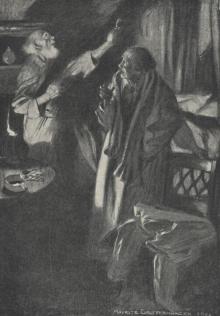 The Monkey's Paw
The Monkey's Paw Little Masterpieces of American Wit and Humor, Volume II
Little Masterpieces of American Wit and Humor, Volume II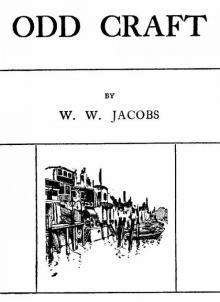 Odd Craft, Complete
Odd Craft, Complete The Lady of the Barge and Others, Entire Collection
The Lady of the Barge and Others, Entire Collection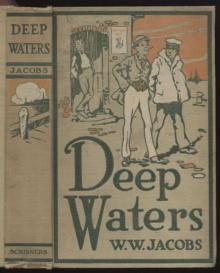 Deep Waters, the Entire Collection
Deep Waters, the Entire Collection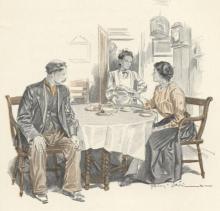 Three at Table
Three at Table Light Freights
Light Freights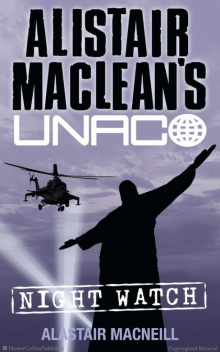 Night Watches
Night Watches The Three Sisters
The Three Sisters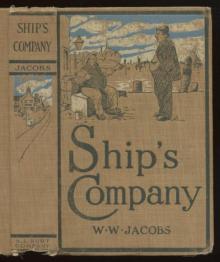 Ship's Company, the Entire Collection
Ship's Company, the Entire Collection His Lordship's Leopard: A Truthful Narration of Some Impossible Facts
His Lordship's Leopard: A Truthful Narration of Some Impossible Facts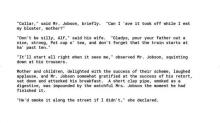 Fine Feathers
Fine Feathers My Man Sandy
My Man Sandy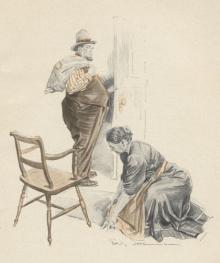 Self-Help
Self-Help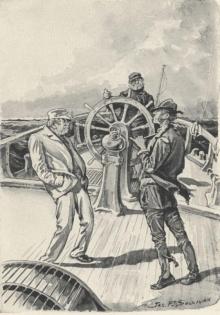 Captains All and Others
Captains All and Others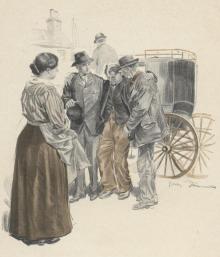 Back to Back
Back to Back More Cargoes
More Cargoes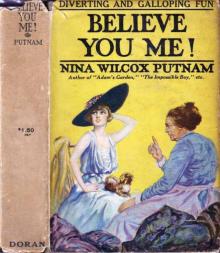 Believe You Me!
Believe You Me!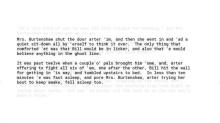 Keeping Up Appearances
Keeping Up Appearances The Statesmen Snowbound
The Statesmen Snowbound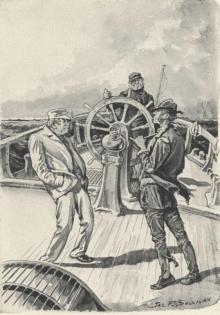 An Adulteration Act
An Adulteration Act The Old Soldier's Story: Poems and Prose Sketches
The Old Soldier's Story: Poems and Prose Sketches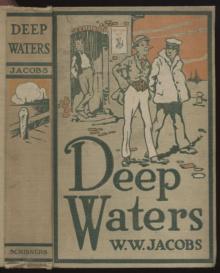 Husbandry
Husbandry Love and the Ironmonger
Love and the Ironmonger The Old Man's Bag
The Old Man's Bag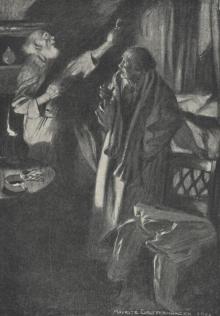 Dirty Work
Dirty Work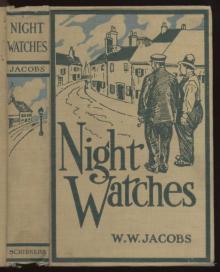 Easy Money
Easy Money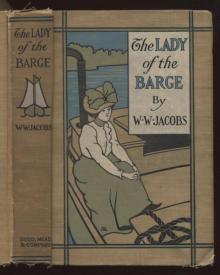 The Lady of the Barge
The Lady of the Barge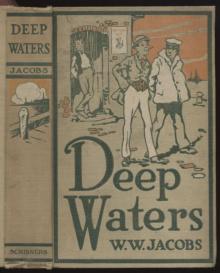 Bedridden and the Winter Offensive
Bedridden and the Winter Offensive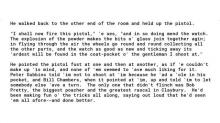 Odd Charges
Odd Charges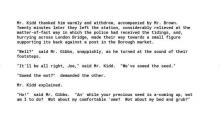 Friends in Need
Friends in Need Watch-Dogs
Watch-Dogs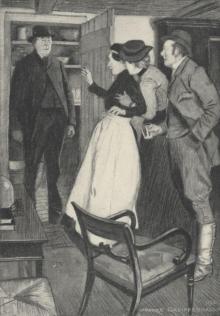 Cupboard Love
Cupboard Love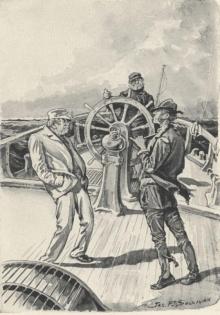 Captains All
Captains All A Spirit of Avarice
A Spirit of Avarice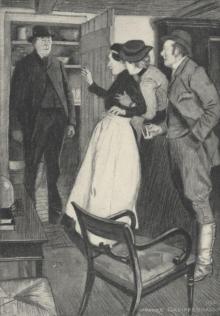 The Nest Egg
The Nest Egg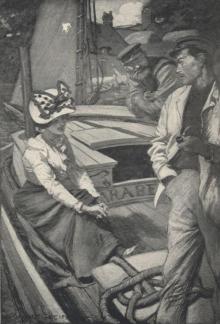 The Guardian Angel
The Guardian Angel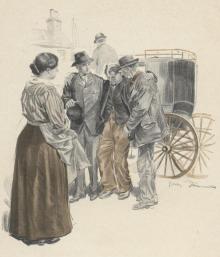 The Convert
The Convert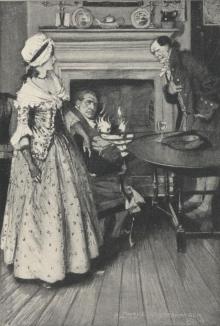 Captain Rogers
Captain Rogers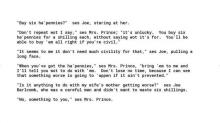 Breaking a Spell
Breaking a Spell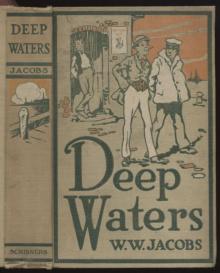 Striking Hard
Striking Hard The Bequest
The Bequest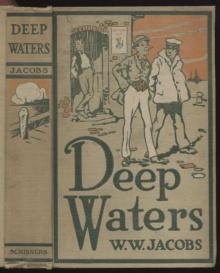 Shareholders
Shareholders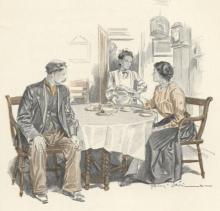 The Weaker Vessel
The Weaker Vessel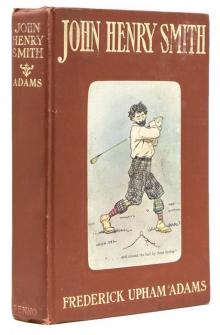 John Henry Smith
John Henry Smith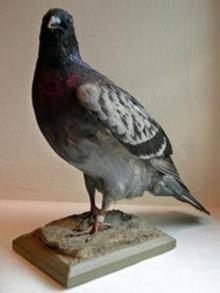 Four Pigeons
Four Pigeons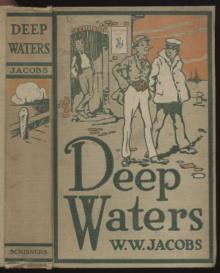 Made to Measure
Made to Measure For Better or Worse
For Better or Worse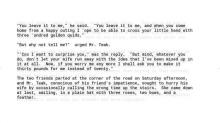 Fairy Gold
Fairy Gold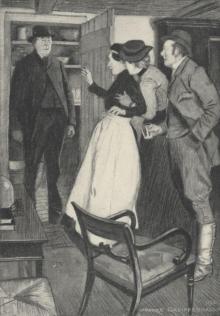 Family Cares
Family Cares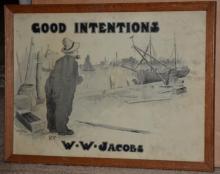 Good Intentions
Good Intentions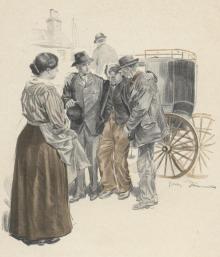 Prize Money
Prize Money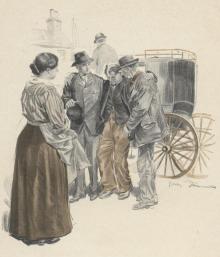 The Temptation of Samuel Burge
The Temptation of Samuel Burge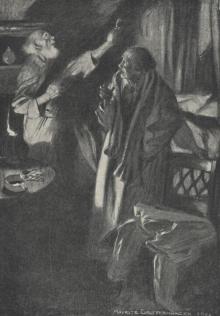 The Madness of Mr. Lister
The Madness of Mr. Lister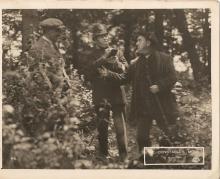 The Constable's Move
The Constable's Move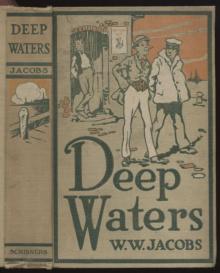 Paying Off
Paying Off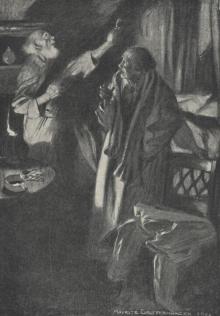 Double Dealing
Double Dealing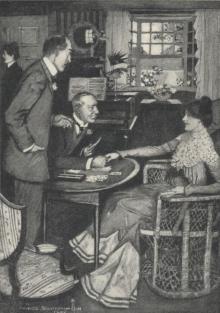 A Mixed Proposal
A Mixed Proposal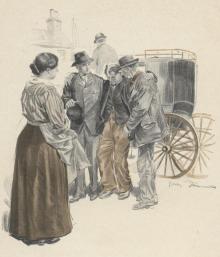 Bill's Paper Chase
Bill's Paper Chase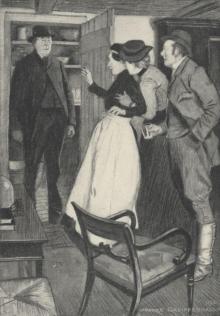 The Changing Numbers
The Changing Numbers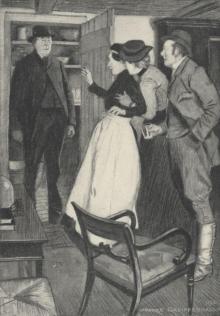 Over the Side
Over the Side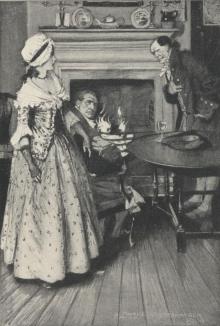 Lawyer Quince
Lawyer Quince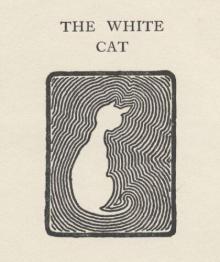 The White Cat
The White Cat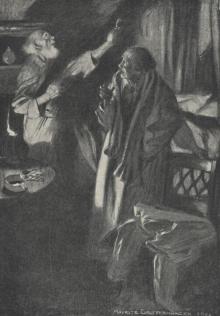 Admiral Peters
Admiral Peters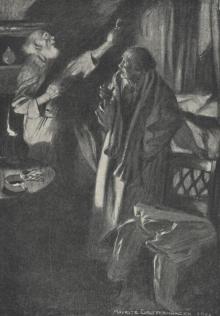 The Third String
The Third String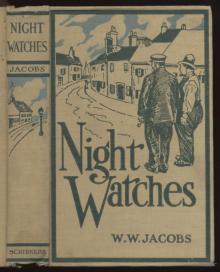 The Vigil
The Vigil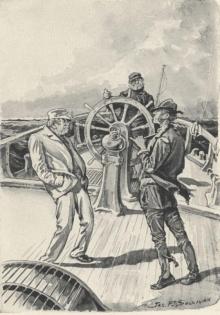 Bill's Lapse
Bill's Lapse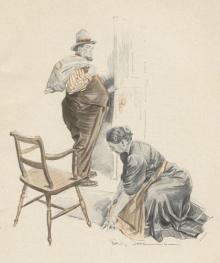 His Other Self
His Other Self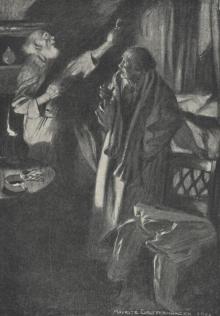 Matrimonial Openings
Matrimonial Openings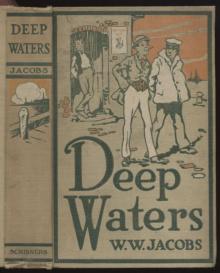 The Substitute
The Substitute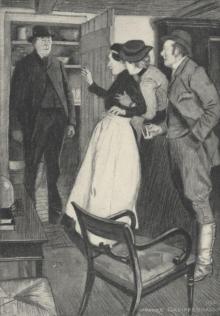 Deserted
Deserted Dual Control
Dual Control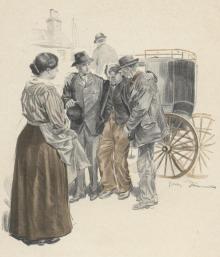 Homeward Bound
Homeward Bound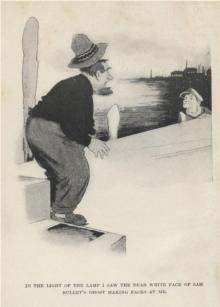 Sam's Ghost
Sam's Ghost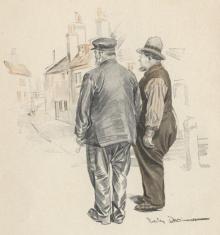 The Unknown
The Unknown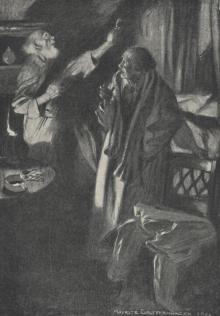 Stepping Backwards
Stepping Backwards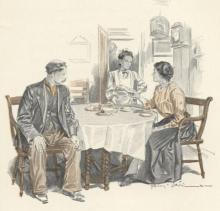 Sentence Deferred
Sentence Deferred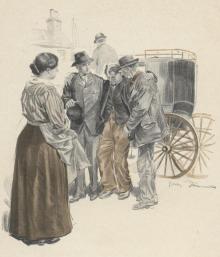 The Persecution of Bob Pretty
The Persecution of Bob Pretty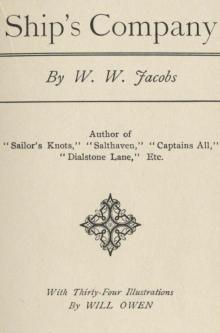 Skilled Assistance
Skilled Assistance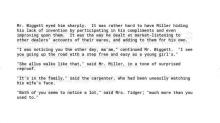 A Golden Venture
A Golden Venture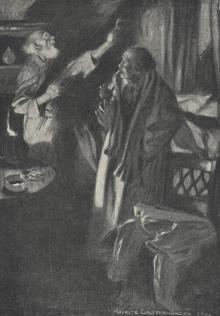 Establishing Relations
Establishing Relations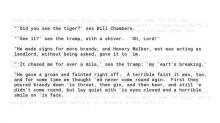 A Tiger's Skin
A Tiger's Skin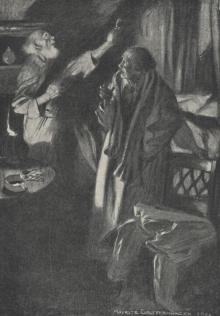 Bob's Redemption
Bob's Redemption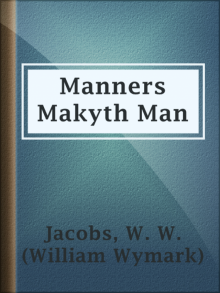 Manners Makyth Man
Manners Makyth Man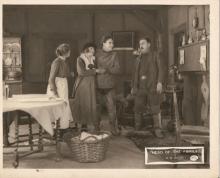 The Head of the Family
The Head of the Family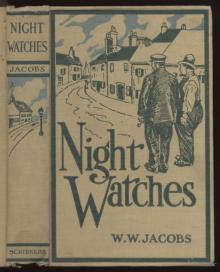 The Understudy
The Understudy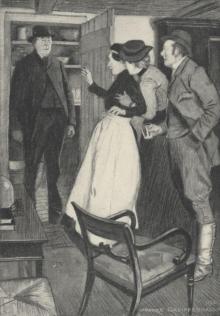 Odd Man Out
Odd Man Out Once Aboard the Lugger-- The History of George and his Mary
Once Aboard the Lugger-- The History of George and his Mary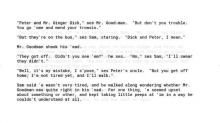 Peter's Pence
Peter's Pence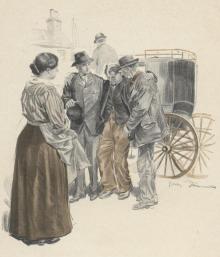 Blundell's Improvement
Blundell's Improvement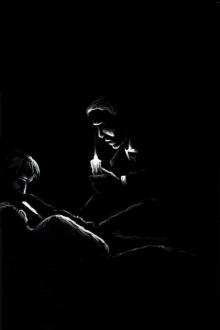 The Toll-House
The Toll-House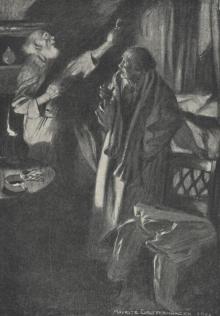 Dixon's Return
Dixon's Return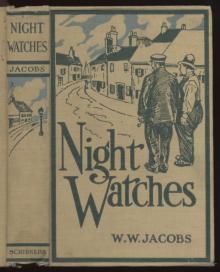 Keeping Watch
Keeping Watch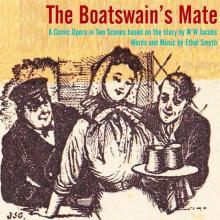 The Boatswain's Mate
The Boatswain's Mate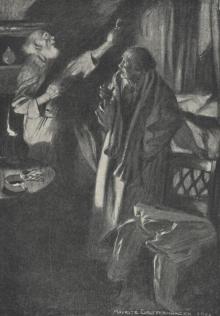 The Castaway
The Castaway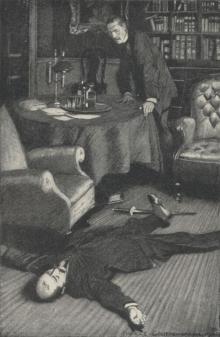 In the Library
In the Library The Monkey's Paw and Other Tales Of Mystery and the Macabre
The Monkey's Paw and Other Tales Of Mystery and the Macabre